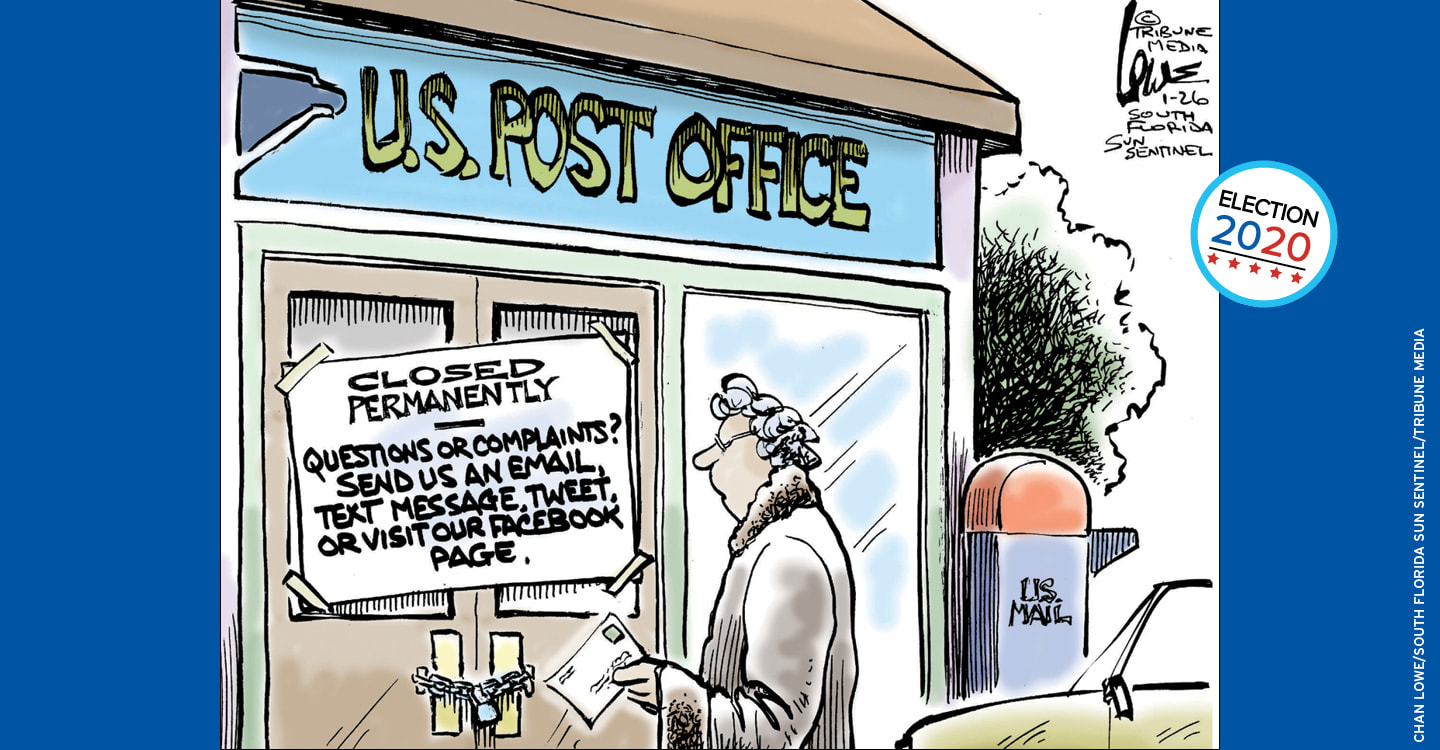When Rhiannon Hampson, a farmer in coastal Maine, went to her post office to pick up a recent delivery of newly hatched chicks, the box was eerily silent.
“We could hear a few, very faint peeps,” Hampson says. “Out of 500, there were maybe 25 alive. They were staggering. It was terrible.”
For decades, postal carriers have delivered day-old chicks in cardboard boxes to small farmers and families with backyard henhouses. But this summer, postal delays have wreaked havoc with the tradition, and chicks around the country have arrived dead.
The delays that became apparent in the late summer are the latest sign of crisis at an agency that has been plagued with financial troubles for a long time. The problems have been exacerbated by the ongoing Covid-19 pandemic, and deep concerns have arisen that the Postal Service won’t be able to deliver millions of mail-in ballots fast enough during the November presidential election.
Amid these challenges, President Trump has been attacking the Postal Service, calling it “a joke,” and refusing to support additional funding. Democrats say he’s trying to deter mail-in voting to help his chances in the election.
Rhiannon Hampson is a farmer in coastal Maine. She recently went to her post office to pick up a delivery of newly hatched chicks. When she arrived, the box was weirdly silent.
“We could hear a few, very faint peeps,” Hampson says. “Out of 500, there were maybe 25 alive. They were staggering. It was terrible.”
For decades, postal carriers have delivered day-old chicks in cardboard boxes to small farmers and families with backyard henhouses. But this summer, postal delays have made that difficult. Unfortunately, chicks around the country have arrived dead.
The postal delays became more noticeable in the late summer. It’s the latest sign of crisis at an agency that has been plagued with financial troubles for a long time. The problems have been worsened by the ongoing Covid-19 pandemic. That’s given rise to deep concerns that the Postal Service won’t be able to deliver millions of mail-in ballots fast enough during the November presidential election.
Amid these challenges, President Trump has been attacking the Postal Service. He’s been calling it “a joke,” and he’s refusing to support extra funding. Democrats say he’s trying to block mail-in voting to help his chances in the election.

